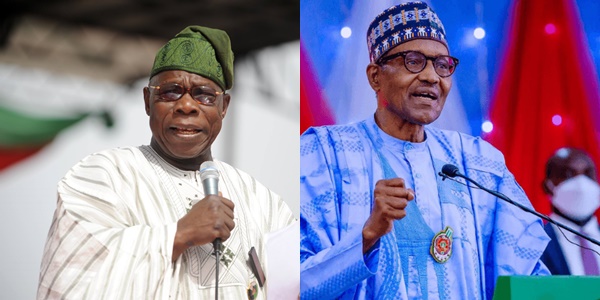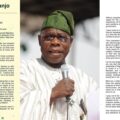The Nigerian presidency has finally made a rejoinder to the claims made by former president Olusegun Obasanjo on President Muhammadu Buhari’s seven-year tenure as the leader of the country.
In a New Year message on Sunday, January 1, Obasanjo, a two-term president and former military head of state, had described Buhari’s administration as “stressful and eventful.”
“The last seven and a half years have no doubt been eventful and stressful years for many Nigerians. We have moved from frying pan to fire and from the mountain top to the valley. Our leaders have done their best, but their best had turned out to be not the best for Nigeria and Nigerians at home and abroad. For most Nigerians, it was hell on earth,” he said.
But in a statement titled “MORALLY SQUALID OBASANJO ATTACKS LEADERS OUT OF FRUSTRATION” on Monday, January 2, President Buhari’s spokesperson and media aide, Malam Garba Shehu, said Obasanjo’s attack on Buhari is a “height of selfishness and little short of moral squalor.”
Shehu said Obasanjo always attacks the president out of frustration, adding that the former president is “being jealous of anyone who beats him to a new record in the nation’s development process.”
“President Buhari is ahead of Chief Obasanjo in all fields of national development and to do that is cardinal sin to Obasanjo whose hallucinations tell him that he is the best ever to lead Nigeria and there will never be another one better than him.
“President Buhari just completed the world-class edifice that is the Second Niger Bridge after three decades of failed promises. It is now awaiting commissioning. Obasanjo laid the sod for the bridge in his first term as elected President and work never started.
“President Buhari had been bagging awards and encomiums for trying to do that which the Constitution of the Federal Republic of Nigeria says a leader should do: serve one, or a maximum of two terms and go,” part of the statement read.
Shehu also said that “Obasanjo destabilized internal democracy by orchestrating impeachment after impeachment of governors who were not compliant with his highly imperial administration.”








